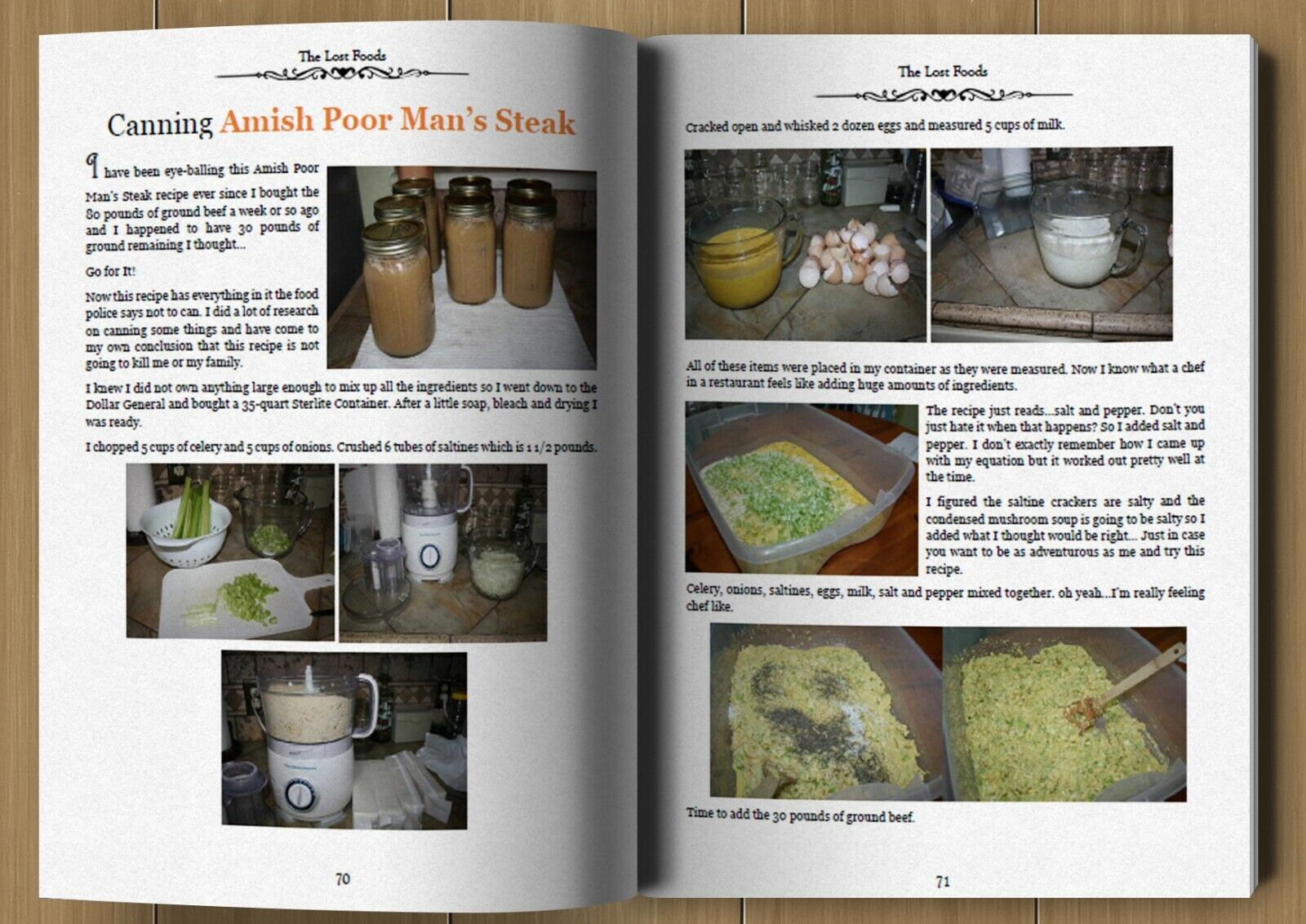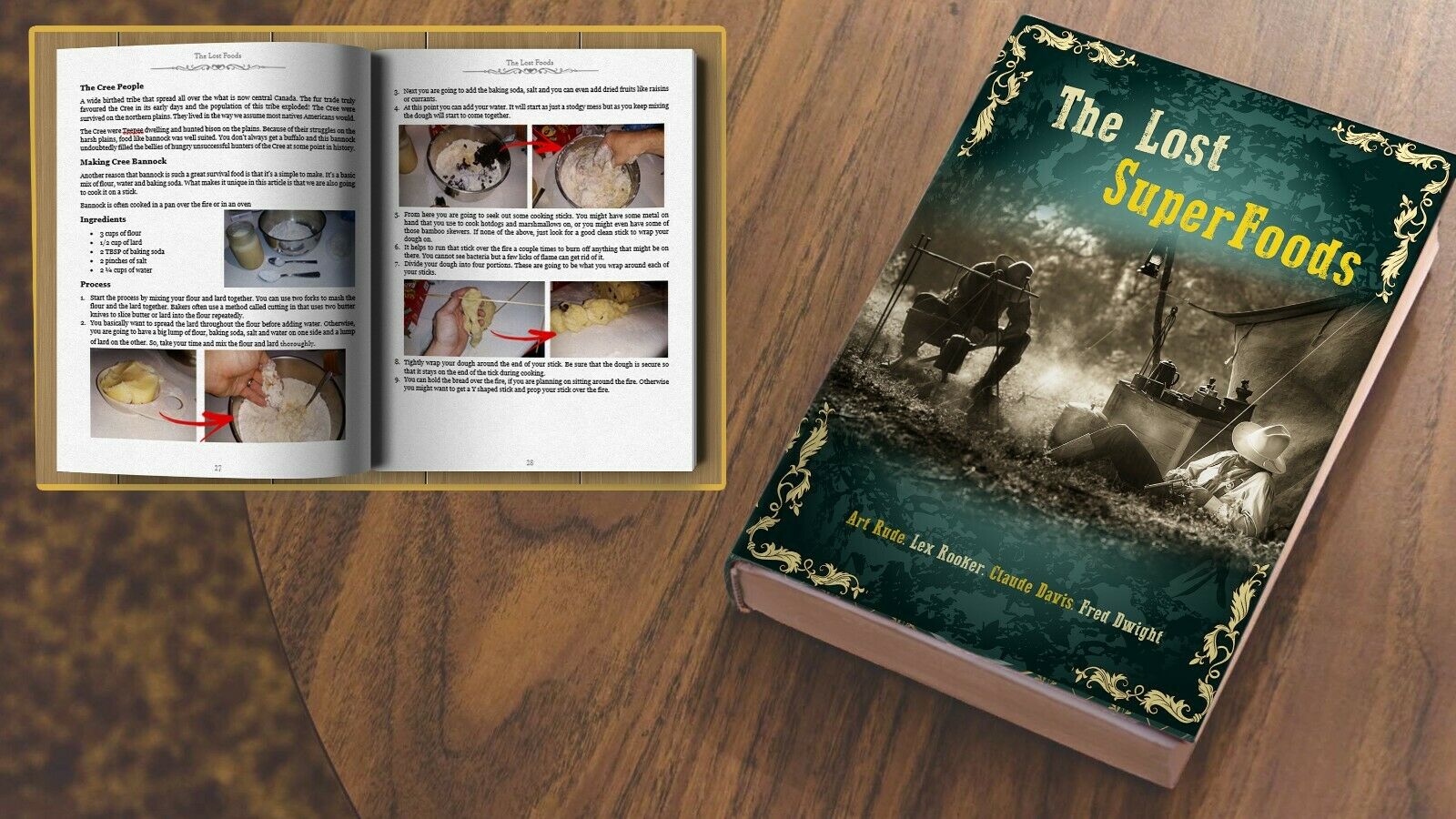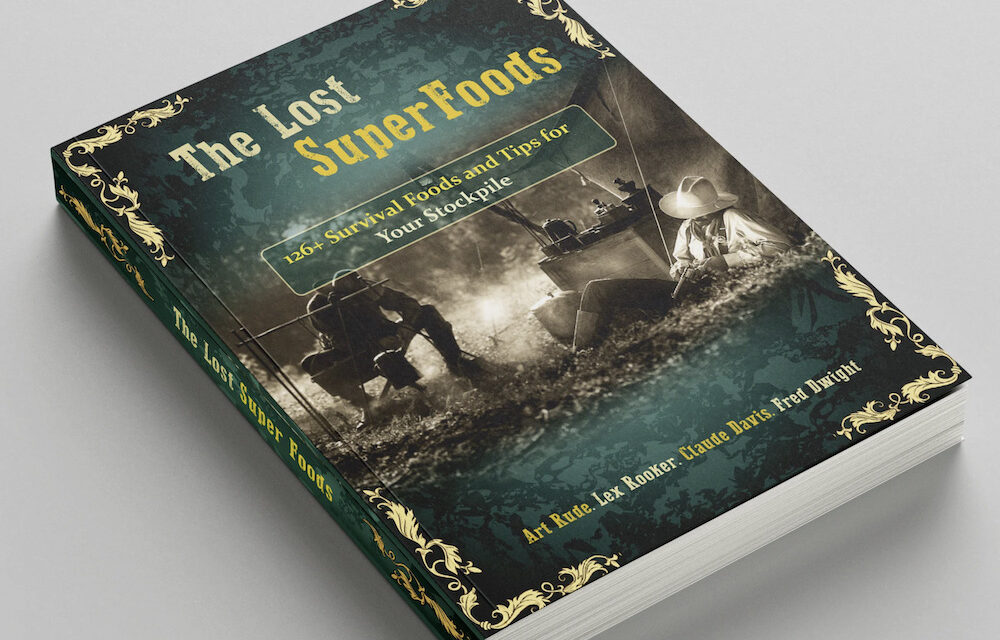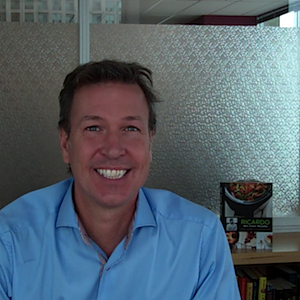The Lost Superfoods – 126+ Survival Foods and Tips for Your Stockpile – Art Rude, Lex Rooker, Claude Davis, Fred Dwight (Global Brother SRL)
I get some some funny old books sent to me for review purposes, but this beauty I found all by myself upon one of those later-than-usual nights when I had enjoyed a few too many glasses of wine and was exploring the nether regions of the interwebs.
When it actually arrived at the door some weeks later, I had actually forgotten ordering it, and imagined it to be a review copy from a publishing house I had never heard of previously. Upon closer inspection it appeared to be, perhaps, self-published, and I have to say that the cover picture, a sepia toned shot of two frontiersmen/cowboys around a campfire (one supine and cleaning his revolver, the other sharpening… something) was strangely reminiscent of noughties/aughts “desktop publishing” and intrigued me somewhat.
So what’s the story behind this book?
Well, it was mainly written by an interesting character from North Dakota who goes by the name of Art Rude (absolutely cracking name, BTW), a former college maths teacher, erstwhile musician (songs include Will I ever See My Debt Paid Off?, Livin’ In The Backwoods, Stay Away From North Dakota, and 40 Below Keeps The Riff Raff Out), and full blown proponent of the off-grid lifestyle.
Whilst I have been known to dabble in a bit of prepping and self sufficiency, I’m not actually as far down that rabbit hole as I occasionally lead people to believe, so in reading through this book, with its talk of Doomsday, SHTF, grid-down situations and the like, I couldn’t help but break into a wry smile as I perused its 270 colour pages.

Whilst the less-than-vibrant photos are decidedly lacklustre, there’s a wealth of fascinating information contained within this peculiar book.
To be honest, The Lost Super Foods won’t be winning any design awards anytime soon, but there’s a lot of great stuff contained within those aforementioned 270 pages, much of it information I have occasionally seen online, but never before collected and curated in this manner; there were also a whole load of recipes/methods listed that were entirely new to me.
The chapter titles are pure clickbait eyeball-bait for the curious mind, and I thoroughly enjoyed all of the book’s references to historical “superfoods”:
- Doomsday Ration Recipe,
- The Superfoods Used By Japan’s Elite Assassins
- The Viking Survival Food With A Three Year Shelf Life
- Aaruul – The Superfood That Helped Mongols Ride To The Gates Of Vienna
- Frumenty – The Food That Saved Europe During The Dark Ages
- How To Make The Portable Soup That Saved The Lewis & Clarke Expedition
- How To Make Bully Beef – The Emergency Survival Food From WWI
I mean, who DOESN’T want to know just how ninjas sustained themselves? I ask you.
For the record, it’s called Suikatsugan, a crafty combo of licorice root, Kudzu starch, dried plums, and mint leaves.

There are many more way less sensational, but nevertheless utterly fascinating, chapter titles:
- Pressure Canning Bacon
- How To Make And Smoke Kielbasa Sausages
- How To Make Homemade Bread In A Can
- How To Make Bark Bread
- How To Pickle Meats For Long Term Storage
- How To Use The Bark Of This Common Tree To Keep Your Meat From Spoiling
- How To Make Homemade Spam
- Preserve Eggs With Mineral Oil
- How To Preserve Half A Pig For A Year Without Refrigeration
Much of the book actually reads like a vast collection of clickbaity articles from a full-bore survivalist website, which it quite possibly was in its past life, but don’t let that put you off. There’s even a chapter titled 22 Ingenious Hacks To Make Food Last Longer that had me looking for the NEXT button.
The writing style is waveringly naive, but undeniably earnest; you just know that Mr. Rude has the best interests of you and your loved ones at heart, something I find so charmingly appealing.
The truly excellent (46 page) closing chapter on edible plants is one of the better guides upon this topic I have read, and perhaps worthy of a book all by itself.
In a way The Lost Superfoods serves as a kind of historical document about the paranoid times that many have lived in/through since the beginning of the Cold War in the late 1940s, and it makes for a terrific read if one approaches it from that angle.
Saying all this, I don’t think that it ever hurts to learn a few new skills when it it comes to preserving foods, and for that side of things this book certainly pays off in spades.
As is this case with much published in this decidedly niche genre, this isn’t an inexpensive book, especially when one figures in the often exorbitant shipping fees from the US, but I have found it in equal measures both entertaining and illuminating.
![]()
(Four out of a possible five apples)







